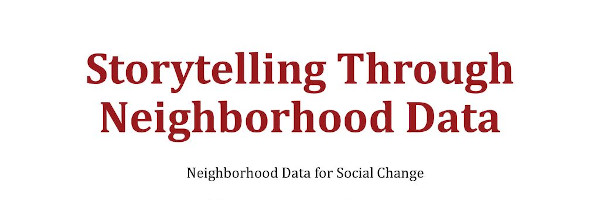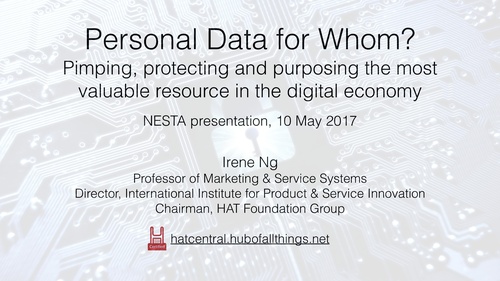Open Data
| Data | |||||||||||||||||||||||||||||||||||||||||||||||||||||||||||||||||||||||||||||||||||||||||||||||||||||||||||||||||||||||||
|---|---|---|---|---|---|---|---|---|---|---|---|---|---|---|---|---|---|---|---|---|---|---|---|---|---|---|---|---|---|---|---|---|---|---|---|---|---|---|---|---|---|---|---|---|---|---|---|---|---|---|---|---|---|---|---|---|---|---|---|---|---|---|---|---|---|---|---|---|---|---|---|---|---|---|---|---|---|---|---|---|---|---|---|---|---|---|---|---|---|---|---|---|---|---|---|---|---|---|---|---|---|---|---|---|---|---|---|---|---|---|---|---|---|---|---|---|---|---|---|---|---|

| |||||||||||||||||||||||||||||||||||||||||||||||||||||||||||||||||||||||||||||||||||||||||||||||||||||||||||||||||||||||||
| Sectors | Data | ||||||||||||||||||||||||||||||||||||||||||||||||||||||||||||||||||||||||||||||||||||||||||||||||||||||||||||||||||||||||
| Contact | Irene Ng | ||||||||||||||||||||||||||||||||||||||||||||||||||||||||||||||||||||||||||||||||||||||||||||||||||||||||||||||||||||||||
| Topics |
| ||||||||||||||||||||||||||||||||||||||||||||||||||||||||||||||||||||||||||||||||||||||||||||||||||||||||||||||||||||||||
Activities
Press
| |||||||||||||||||||||||||||||||||||||||||||||||||||||||||||||||||||||||||||||||||||||||||||||||||||||||||||||||||||||||||
- Authors
The way to think about data is as a new currency – a store of value. What is the value of data, it is a similar question to what is the value of the USD or GBP. The answer for the value of USD is that it is a “basket of goods” because the USD is a store of (potential) value. Stuff you can spend the USD on.
A similar answer for the value of data would be “a basket of personalisations/recommendations”. Taking the analogy further, data isn’t valuable till you ‘spend’ it, i.e. when it becomes a medium of exchange. Like the way USD is not really valuable till you spend it. And just because it has the potential to be spent on something, doesn’t mean that it can be realised. Try to go to a country that doesn’t accept USD and you’ll get what I mean. Currently, the part of the Internet that is thirsty for this personal data currency (in a very lumpy and crude form) is advertising. But that is quickly changing. We are already seeing personal data being used (“spent”?) for recommendations, advice, and insights across a whole range of industries.
The difference between data and USD is of course in the way data is made into a medium of exchange. Data on Facebook is a currency because of the way Facebook organises it for its ease of use and exchange in targeting ads. So Facebook data on Facebook is not just where the data sits, it is also where the exchange happens. Facebook personal data is therefore a kind of personal data currency in the ‘country’ of Facebook and FB has created exchanges and transactions that made the medium of exchange possible. Take the data out of Facebook, and suddenly one is not really sure of its ‘value’. Without the platform, it’s data is stripped of its contextual use, making its value uncertain unless there is another place to use it. So, stripped of its context, FB personal data becomes a potential value in use.
The way the USD ensures its potential value is realised is by having it in an accessible place, like a wallet or a bank account, and by having places to spend it. Then when we see something we like, we can immediately spend it. Data is similar. Its value is only realised when used. Your body dimensions data are a great set of data when ‘spent’ or used for recommendations from a clothing shop. Like the USD, data can be a store of value but you would need it to be in a holding place until you see something that you want recommendation or personalisation on and you can then give it out. With USD you can do that with a wallet or a credit card/bank account. With data you have a HAT microserver – real time, on demand personal data as a medium of exchange with apps and websites – and a way to be available for every form you want to fill as well as every time you want to give any information about you, your life, your health or your views in return for something on the Internet.
However, the analogy between data and USD breaks down when you go further into its economic properties. For USD, once it’s spent, you’ve got to out to earn more of it. For data, you can use and re-use that data again and again. That’s why it’s worth keeping it for ourselves. They are a part of our attributes and our digital history (assuming its real, that is), and no amount of money can buy that history if you’ve never collected it. And if you didn’t, and when the future comes along to be able to exchange data with great recommendations, personalisation and advice for health well being, jobs, clothing, diet etc. etc., we will be poorer without our data.
HAT microservers help make our personal data into a store of value, making us a more valuable Internet citizen; Using plugs, we can bring the data that is out on the Internet into our HAT. Yet, to make our HAT data into a universal medium of exchange requires a different effort and it leads to the second question I get asked a lot – how to make personal data controlled and owned by the person usable and valuable. That, really, is a question on how we make HAT data a universal medium of exchange i.e. how do we make personal data a currency for the person to be able to ‘spend it’.
People think data is an object or some commodity like oil. It doesn’t help that many have actually said “data is the new oil”. This makes a BIG assumption i.e. we know the boundaries of what makes it a commodity. Even oil is commoditised through rights to drill or a barrel of crude oil. Data? Its existence does not make it an economic good. Not yet anyway.
Demonstration Projects

|
Building an Open Data Ecosystem | |
| The "Building an Open Data Ecosystem" project in Leeds, United Kingdom aims to foster collaboration and innovation through the development of an open data ecosystem in the city. | ||
| Data.gov | ||
| Data.gov is a website operated by the U.S. federal government that provides access to datasets and other resources related to government activities and policies. It is intended to make government data more easily accessible to the public, with the goal of increasing transparency and enabling citizens to better understand and engage with their government. Data.gov offers a wide variety of data sets and resources, including data on topics such as agriculture, education, energy, finance, health, and more. The website also includes tools and resources for developers, such as APIs and code libraries, to help people use the data in creative and innovative ways. | ||

|
Decision Theatre PSU | |
| Portland State University’s Decision Theater is designed for university researchers and regional stakeholders (i.e. government, private companies) to work on projects that “link data sets, visualization and decisions,” according to a university statement. The space is modeled after Arizona State University's Decision Theater, as well as a similar facility at the University of Chicago. | ||

|
GIS Resources from the Oregon Department of Forestry | |
| Oregon Department of Forestry's GIS Data is maintained by the Information Technology Department's GIS Unit. | ||

|
I3 Consortium Action Cluster | |
| The I3 project is creating a tool that will allow independent device owners to directly manage how the data streams from their IOT devices are delivered to applications. Opensource Project software includes support for privacy, trust, and incentive management.
Requirements and proof-of-concepts complete. Consortium management structure in process. Demonstration systems in process. R1.0 beta software in design. | ||

|
Neighborhood Data for Social Change | |
| The Neighborhood Data for Social Change (NDSC) platform is a free, publicly available online resource for civic actors to learn about their communities. | ||

|
Oregon Data Catalog | |
| The Oregon Data Catalog is a platform for managing and publishing data sets that are relevant to the state of Oregon in the United States. The platform is based on CKAN, which is a free and open-source software platform for managing and publishing data. | ||

|
PortlandMaps - Open Data | |
| PortlandMaps delivers site-specific property information, neighborhood crime statistics, aerial photos, school information, and tons of additional map data for the City of Portland and beyond. | ||
News

|
Digital Flanders | |
| As the European Union aimed to become an attractive, secure, and dynamic data economy, the Government of Flanders was eager to become a central player in this new data infrastructure and a leader in secure data sharing, bolstering the Flemish economy and leading to new innovations. | ||

|
MIMs Plus Technical Specifications final version 4 released | |
| Open & Agile Smart Cities (OASC) Minimal Interoperability Mechanisms (MIMs) are the minimal but sufficient capabilities needed to achieve interoperability of data, systems, and services between buyers, suppliers and regulators across governance levels around the world. Because the mechanisms are based on an inclusive list of baselines and references, they take into account the different backgrounds of cities and communities and allow cities to achieve interoperability based on a minimal common ground. | ||

|
OpenCommons Launches Smart Cities Collaborative WIKI | |
| OpenCommons in partnership with The Cirrus Group a non profit and the National Institute of Standards and Technology have launched a catalog of smart city projects, resources and organizations. | ||
















